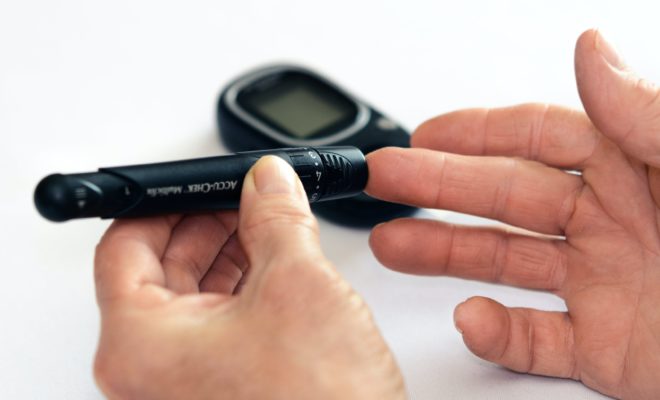How to Control Diabetes

Know Your Diabetes ABCs
Talk to your health care team about how to control your A1C, blood pressure, and cholesterol. This can help reduce your chances of having a heart attack, stroke, or other problems related to diabetes.
A for A1 C Test: A1C is a blood test that measures your blood sugar level average over the past three months. You need to know your blood sugar levels over a period of time. The A1C average for many people with diabetes is below 7.
B for Blood Pressure: If your blood pressure gets too high, it can lead to a heart attack, stroke, and damage your kidneys and eyes. The ideal blood pressure for most people with diabetes is below 140/90.
C for Cholesterol: LDL or “bad” cholesterol can build up and clog your blood vessels. HDL or “good” cholesterol helps remove the “bad” cholesterol from your blood vessels. Ask what your cholesterol numbers should be. Your goals may be different from other people
Learn How To Live with Diabetes
– Stress can raise your blood sugar. Learn ways to lower your stress. Try breathing exercises, gardening, walking or jogging, meditating, engaging in a hobby, or listening to your favorite music.
– Make a meal plan keeping in mind your diabetic condition with help from your health care team.
– Eat food that is rich in fiber, such as whole grain cereals, crackers, rice, etc.
– Drink water instead of other aerated drinks or juices.
– Set a goal to be active and do some sort of physical activity each day.
– Stay at or get to a healthy weight by using your meal plan and incorporating a fitness regime in your daily routine.
– Take your medicines for diabetes even when you feel good.
– Brush your teeth and floss every day to keep your mouth, teeth, and gums healthy.
Get Routine Care to Stay Healthy
See your health care team at least twice a year to find and treat any problems at the initial stage. At each visit, be sure you have a blood pressure check, a foot check, a weight check, and a review of your self-care plan. Once each year, ensure you get a cholesterol test, complete foot exam, dental exam to check teeth and gums, dilated eye exam to check for eye problems, flu shot, and urine and a blood test to check for kidney problems.




